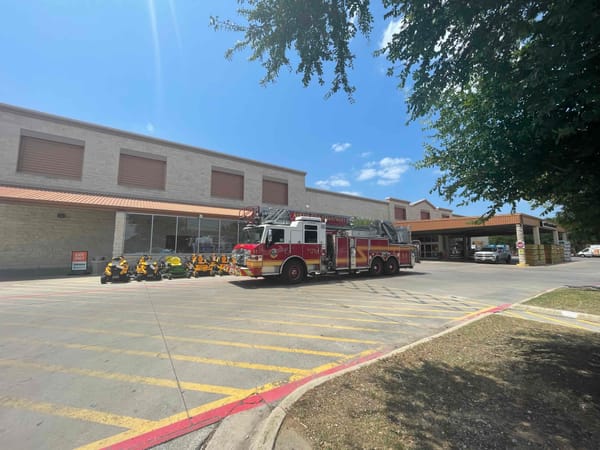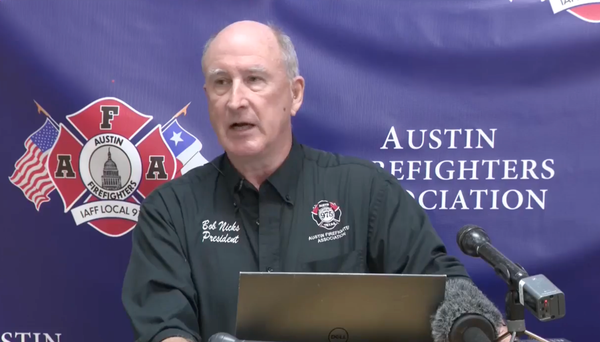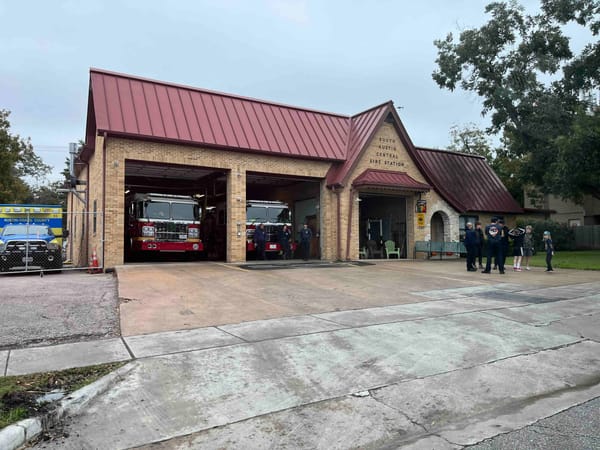Remember the TPID?
The hotel tax that was supposed to fund homelessness.
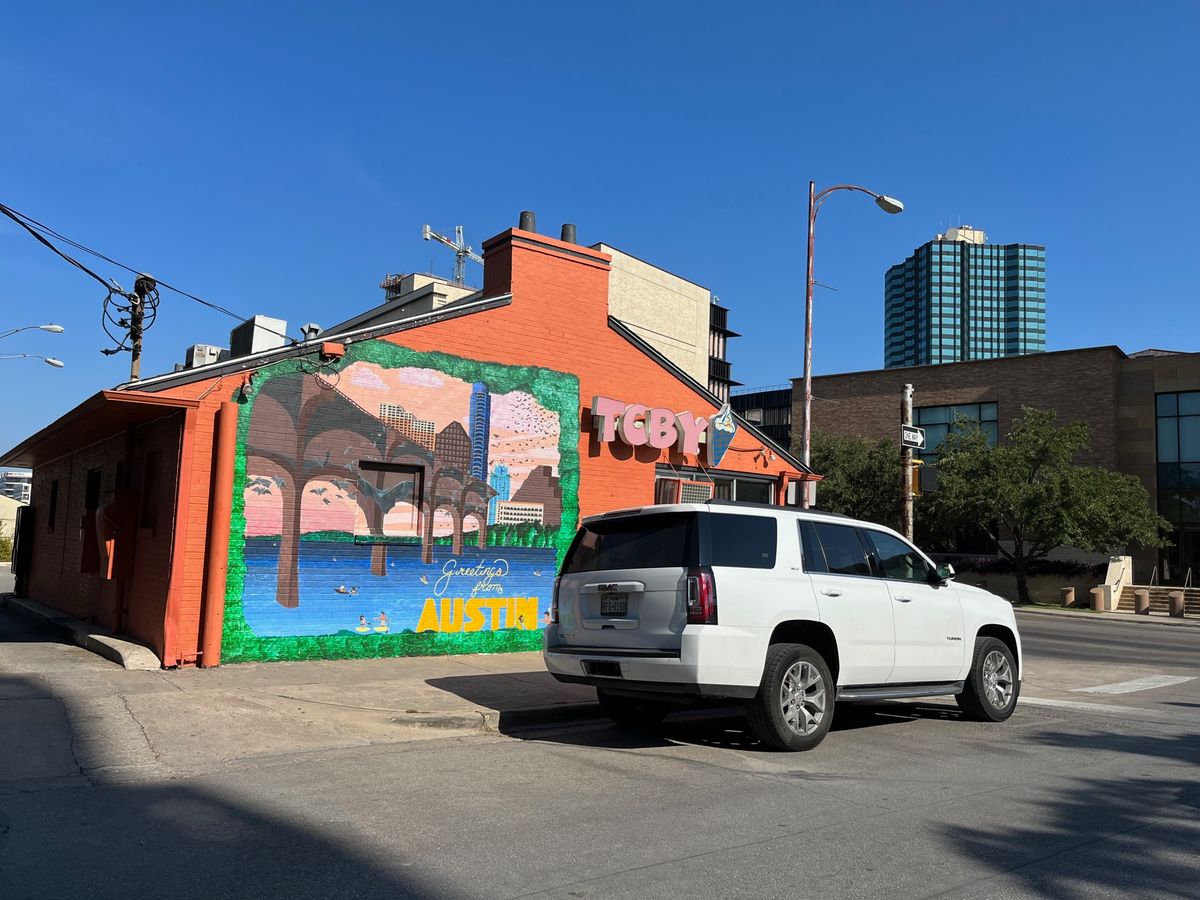
Correction: Yesterday for some reason I referred to Guadalupe Neighborhood Development Corporation Assistant Director Rachel Stone as Rebecca Stone. I regret the error.
Way back in 2017, Mayor Steve Adler talked about solving something called the "Downtown Puzzle," described by Chronicle columnist Michael King as "persistent homelessness, precarious music clubs, unfulfilled heritage resources, limited walkable destinations."
An implemented Puzzle, says Adler, would create an ongoing funding stream to relieve the Austin Resource Center for the Homeless and provide permanent supportive housing; expand the Austin Convention Center for greater capacity and to capture conventions currently going elsewhere; extend the Waller Creek Tax Increment Financing (TIF) District to fully implement its "chain of parks"; create additional funding streams for Red River music clubs and mixed-use redevelopment on East Sixth; provide additional monies for historic preservation; and develop a more rational Downtown and Medical Center "Innovation Zone" street grid, along with a less vehicle-bound pedestrian matrix.
A lot of that stuff has since happened. The Waller Creek Chain of Parks, since renamed the Waterloo Greenway, is going forward. City Council approved a hotel tax increase to fund a new Convention Center and has increased the amount of hotel tax dollars flowing to historic preservation projects. Red River St has been reconfigured. E. 6th St is poised to get a face lift.
But one promise that remains conspicuously unfilled is the creation of a permanent stream of funding to house the homeless.
Back in 2018-19, you see, those of us who voiced skepticism of the wisdom of raising the hotel tax to fund a new Convention Center were told that we were getting in the way of a crucial lifeline for the most vulnerable people in our community.
The idea, as presented by its supporters, was that IF the city agreed to build the new Convention Center demanded by the hotel industry, the hotels would agree to set up a Tourism Public Improvement District funded by an additional 1-2% tax on guest revenue. Most of that money would be used by the hotels to lure conventions to town through discounts on convention space and hotel rooms. But the hotels vowed that a whopping 40% of the TPID funds would be given to the city to combat homelessness.
The problem was that at the same time that the hotels were presenting themselves as saviors, the same lobbyist who had been selling the Convention Center plan to City Council was at the Capitol getting a new law passed that prohibited TPIDs from spending money on anything except tourism marketing and promotions. Watson, then a state senator, voted for the bill along with all but three members of the Senate.
Nevertheless, Texas Hotel & Lodging Association president Scott Joslove insisted that the TPID could still be used to fund homeless services. It just couldn't be done directly.
Joslove pointed to discounts –– or "buydowns" –– that the Convention Center offers customers on convention space. Money generated by the TPID could be transferred to the Convention Center to cover the buydowns, thereby allowing the Convention Center to transfer the money it would have spent on buydowns to the city's general fund. Once the money is in the GF, City Council can spend it as it sees fit, including on homelessness.
Are we buying this argument?
The hotel industry and the Convention Center have insisted that nothing has really changed in terms of potential dollars and cents for homelessness, but others, myself included, are skeptical.
The money for the city is now contingent on the Convention Center offering incentives that actually lead to events, meetings, conventions etc. In other words, the original plan was for the city to get a certain percentage of hotel revenue. But now the city only gets dollars if and when the Convention Center attracts business.
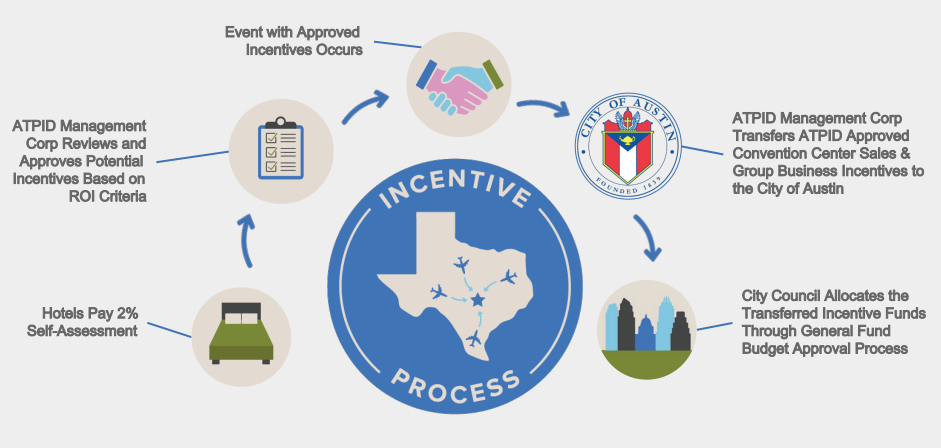
So what's going to happen between 2025-29, when there is no Convention Center? The TPID will of course still be generating millions of dollars because the vast majority of hotel stays have nothing to do with conventions, but it's not hard to imagine that because the Convention Center won't be doing much business, there won't be too much "buydown" money flowing to the general fund.
The bottom line is that City Council needs to get some better assurances.
The deal then, the deal now
On Thursday, City Council will vote on a new TPID plan drafted by Convention Center staff with input from hotels. For it to be approved, not only must Council OK it, but so must 60% of hotels in the city with over 100 rooms.
Back in 2020, the hotels had agreed to a 1% TPID assessment, although they were open to eventually increasing it to 2%. Back then, however, the deal was for 40% of the TPID revenue to be diverted to the city for homelessness funding.
The plan staff is now presenting is a 2% tax, but only 20% of the revenue is earmarked for the "incentives" that will allow the Convention Center to divert money to the general fund. Below is the projected revenue it would generate and how it would be used.
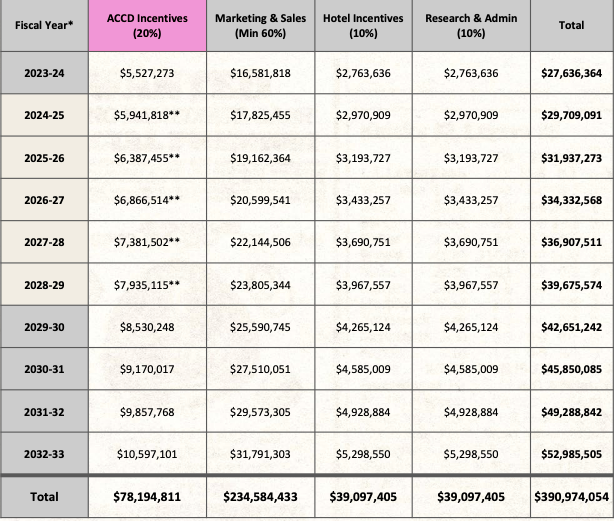
Now, it's true that 20% of 2% is just as good as 40% of 1%, but it's worth noting that a few years ago there was talk of eventually raising the tax to 2% but maintain the city's 40% share.
Katy Zamesnik, assistant director of the Convention Center, said the changes to the TPID are partially driven by changes to plans for the new Convention Center. The city originally envisioned the existing Convention Center remaining open, or at least partially open, during the construction of the new facility. However, it turned out the city couldn't afford to buy the necessary adjacent properties, so the plan is now to demolish the existing Center entirely and build a new one in its stead. The city anticipates being without a facility from spring 2025 (just after SXSW) to January 2029 (in time for SXSW).
The absence of its flagship facility will of course significantly diminish its business, but the Convention Center Department says it will continue trying to attract meetings and events to other sites, such as the Palmer Event Center or private spaces offered by hotels.
Zamesnik says that it is in anticipation of these lean times for the convention business that hotels support the bigger 2% TPID assessment. That will provide even more money to invest in marketing tourism and conventions (both for the smaller spaces and the future Convention Center) and in incentives to lure customers.
No more talk of homelessness
It was notable that the Convention Center staff's presentation made no mention of homelessness. I suppose it's not their role to specify what City Council does with the money it gets from the TPID, but it's a stark departure from the Adler/Cronk days, when that was one of the chief selling points for the Convention Center expansion in general and the TPID specifically.
I suspect the deemphasis of homelessness funding has something to do with Interim City Manager Jesus Garza, who in a recent meeting shot down the idea that those funds should be committed based on a priority set by previous Councils.
Fuentes proposes an alternative
Citing the "significant change" to the TPID terms presented by staff, Vanessa Fuentes suggested approving the agreement but setting a shorter term. She initially proposed four years, but increased it to five years after learning from staff that that is the minimum term allowed under state law.
Zo Qadri voiced support for the idea.
However, the mayor pushed back, reminding his colleagues that the TPID couldn't go forward without the support of the hotels.
"Based on conversations I've had with them, we wouldn't have a TPID" if the hotels lack the assurance provided by a 10-year plan.
Fuentes shot back: "Is the plan here that we're supposed to rubber-stamp this service plan?"
Watson insisted that was not his suggestion. Council should consider what it wants out of the TPID but should take into account whether the hotels will even accept the deal, he replied.


